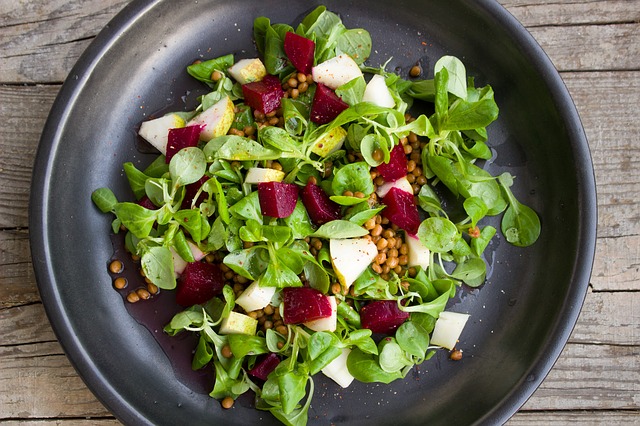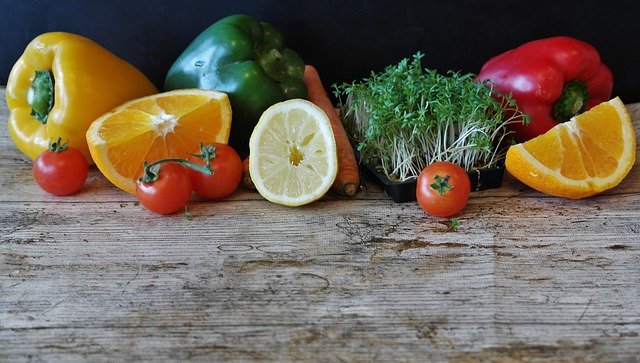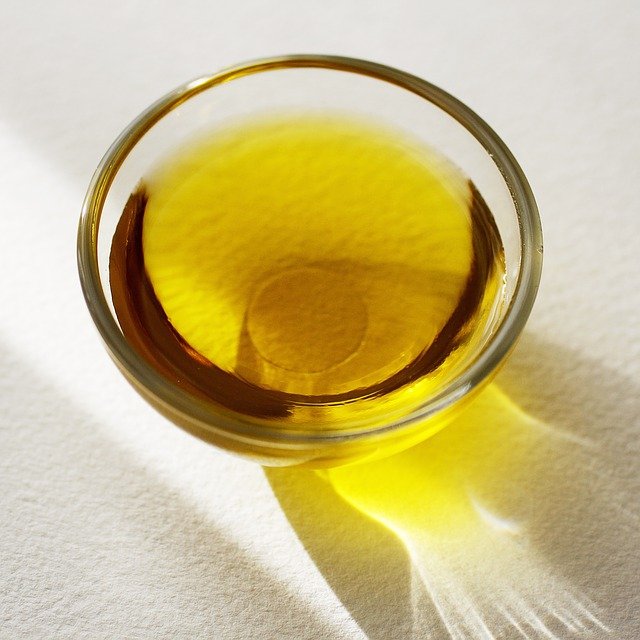Featured Post
- Get link
- X
- Other Apps
The ketogenic diet has become very popular in recent years and is based on the consumption of low carbohydrates and high fat.
Scientific studies have found this diet to be effective for ( 1 , 2 ,):
Lose weight.
Lower the risk of diabetes and epilepsy.
Prevent cancer.
Prevent Alzheimer's.
The daily amount of carbohydrates on a standard ketogenic diet is 20 to 50 grams. This amount can be consumed with very nutritious foods such as fruits, vegetables, and seeds.
The selection of edibles to achieve this amount of carbohydrates depends on:
Lifestyle.
Pleasures.
Level of physical activity.
If you want to know more, here are the details of the 16 best foods you can consume on the ketogenic diet:
Here the 15 foods to eat on a ketogenic diet safe
1. Seafood
One of the most delicious foods that you can add to your diet is fish and shellfish. This is due to its low amount of carbohydrates and its high amount of ( 3 ):
Potassium.
Selenium.
Vitamins of the B complex.
Seafood
The amount of carbohydrates in shellfish is variable, for example, shrimp and most crabs do not contain carbohydrates, but other shellfish do ( 4 ).
The ketogenic diet can include seafood with carbohydrates, which according to a 100-gram (3.5-ounce) serving contains ( 5 , 6 , ):
Clams: 5 grams.
Mussels: 7 grams.
Octopus: 4 grams.
Oysters: 4 grams.
Squid: 3 grams.
Fish
In the case of fish, some are very high in omega 3 fatty acids, such as salmon, sardines, and mackerel. And due to its composition, they have shown ( 7 ):
Lower insulin levels in obese people.
Increase insulin sensitivity in obese people.
Besides that its frequent consumption helps ( 8 , ):
Lower the risk of mental illness.
Improve mental health.
It is recommended to eat fish at least twice a week.
2. Low-Carb Vegetables
Vegetables that do not contain starch, are low in calories and carbohydrates and high in:
Fiber.
Vitamin C.
Minerals
Fiber is a type of carbohydrate that your body cannot digest or absorb, and it helps keep you more satiated and improves your digestion.
This means that when considering the total carbohydrates in the foods you eat, you must subtract the amount of fiber.
Most vegetables have a very low net carbohydrate content, but starchy vegetables can all meet your carbohydrate requirements in one serving. Some examples of high carbohydrate vegetables:
Pumpkin.
Tomato.
Beetroot.
Carrot.
Turnip and kohlrabi.
Other very high carbohydrate vegetables are tubers, such as:
Yucca.
Sweet potato.
For a vegetable to be considered low in carbohydrates it must contain ( 9 , ):
Less than 1 gram of carbohydrates per cup, for example, raw spinach.
Up to 8 grams of carbohydrates per cup, for example, Brussels sprouts.
Read our list of the 21 best low carb vegetables to do the ketogenic diet by clicking here.
The Benefits of Including Vegetables in Your Daily Diet
Vegetables provide large amounts of antioxidants, which help reduce cell damage. This protective property is due to the fact that antioxidants neutralize free radicals (unstable molecules that cause cell damage) ( 10 ).
One group of vegetables, called crucifers, stands out for lowering the risk of cancer and heart disease
( 11). Some examples are:
Broccoli.
Cauliflower.
Brussels sprouts.
Kale.
Low carbohydrate vegetables can help you replace high carbohydrate foods, for example:
Cauliflower can be a substitute for rice, mashed potatoes, or pizza crust.
Pumpkin can substitute for noodles or spaghetti.
3. Cheese
The cheese is a delicious ingredient for any dish and is highly nutritional and compatible with the ketogenic diet.
When we talk about cheese, we can say that there are hundreds of different types, which vary in flavor and composition. Fortunately, there are cheeses that are very low in carbohydrates and high in fat, and they are suitable for the ketogenic diet.
For example, one ounce (28 grams) of cheddar cheese gives your body (12 ):
1 gram of carbohydrates.
7 grams of protein.
20% of the Recommended Daily Intake of calcium.
Even though cheese is high in saturated fat, it has never been linked to heart disease risk. In fact, some research suggests that it may lower the risk of heart disease ( 13 ).
Cheese contains conjugated linoleic acids, a type of fat that has been linked to ( 14):
Loss of body fat.
Prevention of loss of body mass.
Strength in old age.
A study conducted in older adults found that participants who consumed 210 grams (7 ounces) of ricotta cheese daily for 7 weeks increased their muscle mass and strength.
4. Avocado
The avocado is soft, creamy, very attractive in color, and delicious taste. But it is also incredibly healthy for your body.
Half an avocado, about 100 grams (3.5 ounces), gives you ( 15 ,16 ):
9 grams of carbohydrates.
7 grams of fiber.
2 grams of usable carbohydrates.
Vitamins
Minerals
Like potassium.
This mineral is very important to facilitate the process of the ketogenic diet.
Helps your nervous system transmit impulses and function better.
Adequate levels of potassium help with proper muscle function and prevent cramps.
Another of the effects of avocado is the improvement in cholesterol and triglyceride levels in the blood.
A study conducted on people with a diet high in avocado amounts found ( 28 ):
22% decrease in LDL cholesterol ("bad" cholesterol) and triglycerides in the blood.
11% increase in HDL cholesterol ("good" cholesterol).
5. Red Meat and Poultry
Most people, when they think of the ketogenic diet, the first things that come to mind are red meat and poultry.
Because ( 17 ,):
They do not contain carbohydrates.
They are a good source of protein of high biological value, which prevents the loss of muscle mass.
They are high in B vitamins.
They contain high amounts of minerals like zinc, selenium, iron, and potassium.
One study found that eating a diet high in animal fats increases HDL (good) cholesterol up to 8% more than low-fat, high-carbohydrate diets.
It is best to choose products from animals that lived in the wild, since they contain greater amounts of ( 18 ):
Omega-3 fatty acids.
Conjugated linoleic acids.
Antioxidants
6. Egg
Eggs are one of the most versatile and nutritious foods. A large egg contains ( 19 ):
1 gram of carbohydrates.
6 grams of protein.
Some of its most appreciated properties are ( 20 , 21):
Content of:
Antioxidants (present in the yolk), which promote the health of your eyes.
Lutein.
Zeaxanthin.
Cholesterol.
Its cholesterol content does not increase cholesterol in the blood, in most cases.
The cholesterol in eggs has been shown to help lower the risk of heart disease.
They increase the production of hormones that promote satiety and stable blood sugar levels, which can decrease the number of calories you consume.
7. Coconut Oil
It is a type of healthy fats, called medium-chain triglycerides (MCT), which go directly to the liver to be used as a source of energy.
Coconut oil has been used to increase levels of ketone bodies in people with Alzheimer's and other diseases in the brain and nervous system ( 22 ).
The main triglyceride in coconut oil is lauric acid, which has a slightly longer chain of fatty acids.
The combination of medium-chain fatty acids and lauric acid is believed to promote a constant state of ketosis in your body.
Additionally, coconut oil is believed to help reduce weight and abdominal fat in obese people.
A study conducted in men who consumed 2 tablespoons (30 ml) of coconut oil per day found ( 23 ):
The average loss of 2.5 cm (1 inch) from the waist, without making any changes in your diet or physical activity.
8. Plain Greek Yogurt And Cottage Cheese
Plain Greek yogurt and cottage cheese are healthy, high-protein, neutral-flavored options (24):
150 grams (5 ounces) of plain Greek yogurt:
5 grams of carbohydrates.
11 grams of protein.
5 ounces (150 grams) of cottage cheese:
5 grams of carbohydrates.
18 grams of protein.
Both Greek yogurt and cottage cheese promote satiety, decrease hunger, appetite, and cravings ( 25 ).
Both can be consumed as a snack or snack, and can be combined with other foods:
Nuts and seeds.
Fruits and vegetables.
Cinnamon and other seasonings.
Sugar, stevia, and other sweeteners.
Dips, accompaniments to soups or stews.
Smoothies and salads.
9. Olive Oil
It helps improve your overall health and prevents heart disease, thanks to its high content of oleic fatty acids, a type of monounsaturated fat ( 26 ).
Not all types of olive oil are the same, you can find it as:
Made from the olive pomace, a mixture of pomace and olive oil.
Olive oil.
Virgin olive.
Extra virgin olive, contains the highest concentration of polyphenols.
Polyphenols are antioxidants that protect the health of your heart because they reduce cellular inflammation and promote the function of your arteries (27).
Olive oil is 100% fat and is an ideal way to dress salads and prepare mayonnaise.
It is not advisable to heat it to high temperatures, as it changes its chemical composition and loses its properties.
The best way to consume it is to add it directly to food after it has been prepared, or to those that do not need to be cooked.
10. Nuts and Seeds
Nuts and seeds are one of the products with the highest fat, the best taste, the most fiber, and the least carbohydrates. Its habitual use has been linked to a reduction in risk of ( 28 ):
Cancer.
Depression.
Heart disease.
Other chronic diseases.
Thanks to their high fiber content, nuts and seeds help you feel more satiated and consume fewer calories ( 53 ).
Although they are generally low in carbohydrates, the amount they contain varies depending on their type.
In one ounce (28 grams) of nuts and seeds you can find ( 29 , 30 , 31 ):
Almonds: 3 grams of net carbohydrates (6 grams of total carbohydrates).
Brazil nuts: 1 gram of net carbs (3 grams of total carbs).
India Nuts: 8 grams of net carbs (9 grams of total carbs).
Macadamia nut: 2 grams of net carbohydrates (4 grams of total carbohydrates).
Pecans: 1 gram of net carbohydrates (4 grams of total carbohydrates).
Pistaches: 5 grams of net carbohydrates (8 grams of total carbohydrates).
Walnuts: 2 grams of net carbohydrates (4 grams of total carbohydrates).
Chia seeds: 1 gram of net carbohydrates (12 grams of total carbohydrates).
Flax seeds (flaxseed) : 0 grams of net carbohydrates (8 grams of total carbohydrates).
Pumpkin seeds: 4 grams of net carbohydrates (5 grams of total carbohydrates).
Sesame seeds (sesame): 3 grams of net carbohydrates (7 grams of total carbohydrates).
11. Strawberries
Most fruits are high in carbohydrates and therefore cannot be included in the ketogenic diet.
But strawberries are the exception to the rule, they are low in carbohydrates and high in fiber. In fact, raspberries and blackberries contain the same amount of fiber as they do of net carbs.
These little fruits contain high amounts of antioxidants with anti-inflammatory effects.
Due to their high fiber content, antioxidant and anti-inflammatory properties, they are one of the best natural protectants ( 32 ).
100 grams (3.5 ounces) of strawberries contain ( 33 ):
Blackberries: 5 grams of net carbohydrates (10 grams of total carbohydrates).
Blueberries: 12 grams of net carbohydrates (14 grams of total carbohydrates).
Raspberries: 6 grams of net carbohydrates (12 grams of total carbohydrates).
Strawberries: 6 grams of net carbohydrates (8 grams of total carbohydrates).
12. Cream and Butter
Cream and butter are two sources of healthy fats, and although they come from milk, they are very low in carbohydrates.
Both have been blamed for increasing the risk of heart disease, due to their high content of saturated fatty acids. However, studies have shown that its consumption is not linked to heart disease.
Some studies suggest that moderate consumption of dairy products can decrease the risk of heart attacks and strokes (34 ).
Cream and butter contain high amounts of linoleic acid, which has been linked to increased loss of body fat.
13. Shirataki noodles
Shirataki noodles are an excellent way not to give up noodles, without increasing your carbohydrate intake, because they provide per serving:
Less than 1 gram of carbohydrates.
5 calories.
This is because they are made from a soluble fiber called glucomannan, which absorbs up to 50 times its weight in water ( 35 ).
By including them in your diet, you will be adding soluble fiber and water, which will help you:
Improve your digestion.
Stay satiated longer, decrease hunger and cravings.
Keep blood sugar levels constant.
Promote weight loss.
Promote diabetes control.
You can find these noodles in different presentations such as:
Rice.
Fettuccini.
Linguine.
Angel's hair.
Which will allow you to continue preparing your favorite dishes and recipes without sacrificing your diet.
14. Olives
Olives provide the same benefits as olive oil, with the difference of being in a solid-state. Oleuropein, the main polyphenol (antioxidant) found in olives, has anti-inflammatory properties that protect you from cell damage ( 79 ).
Scientific studies suggest that consuming olives helps ( 36 ):
Prevent the loss of bone density.
Lower high blood pressure.
You can find olives of different sizes, without modifying their carbohydrate and fiber content. Half of the carbohydrates come from fiber, which means that the net carbohydrate intake is very low.
One ounce (28 grams) of olives, equivalent to 7-10 pieces contains :
2 grams of total carbohydrates.
1 gram of fiber.
1 gram of net carbohydrates.
15. Unsweetened Tea and Coffee
Tea and coffee are two incredibly healthy, zero-carb drinks. Both contain caffeine, which helps ( 37):
Speed up your metabolism.
Improve your physical performance and mood.
Increase your alertness.
People who drink tea and coffee in large quantities have a lower risk of developing diabetes.
If you like to add cream, you can do it, avoiding the consumption of "light" creams that are made with many carbohydrates.
15. Dark Chocolate and Cocoa Powder
The black chocolate, bitter or pure, and the cocoa powder, are a delicious way to consume antioxidants, so are considered superfoods , at the same as acai and blueberries ( 38 ).
The flavonoids present in dark chocolate have been shown:
Lower the risk of heart disease.
Lower high blood pressure.
Promote proper vascular health.
Although it seems like a dream come true, chocolate is part of the ketogenic diet.
It is very important to select the correct type of chocolate, with at least 70% cocoa:
One ounce (28 grams) of dark chocolate (100% pure) contains:
3 grams of net carbs.
One ounce (28 grams) of dark chocolate, 70% to 85% cocoa contains:
10 grams of net carbs.
Enjoy the benefits of the ketogenic diet safe
The ketogenic diet can help you lose weight, control your sugar levels, and maintain your health, while still eating your favorite foods.
This type of diet includes a large number of versatile and delicious products, which will help you not to consume many carbohydrates.
Check out this video on the benefits of going on the ketogenic diet:
Remember that the key is the number of carbohydrates you consume in the day.
If you want to go on the ketogenic diet, start by using the 15 foods recommended in this article.source
We would like to receive your comments and suggestions.source (1)
Share this valuable information with your circle of friends.
Photos by Pixabay
It may interest you: 10 Natural Ways To Reduce High Cholesterol level
26 FOODS THAT CAN GIVE YOU MORE ENERGY
Best Foods That Stimulate Increased Testosterone Levels Naturally







Comments
Post a Comment